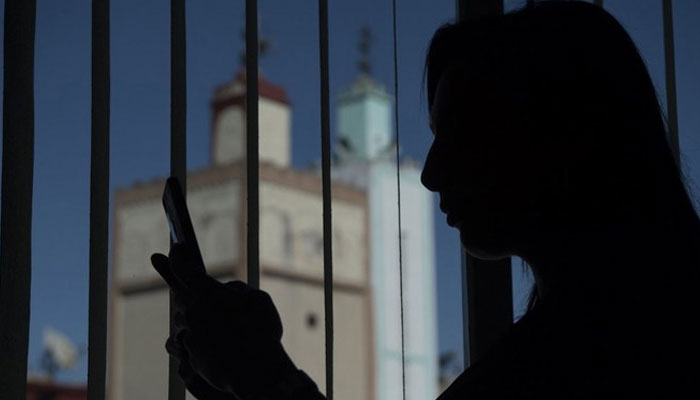A tighter muzzle
This approach to misinformation is likely to end up becoming more of a threat to people’s rights
The infamous Prevention of Electronic Crimes Act (Peca) 2016 is seemingly about to get a major shot in the arm. Peca, which digital activists say is used to target journalists and muzzle free speech, will now be amended to, via the PECA Amendment Bill 2024, establish a Digital Rights Protection Authority (DRPA). The PM has already approved the draft amendment. Rumours of the arrival of such an authority have been circulating for some weeks and it will reportedly have the power to regulate online content and punish those violating the new Peca law on social media. Falling under the jurisdiction of the Ministry of Information Technology, the DRPA will also advise the government on digital rights matters, ensure responsible use of the internet and enforce regulations, and will also collaborate with social media platforms. The proposed authority will also have the power to demand information from involved witnesses and individuals and establish rules and enforce laws related to digital rights.
While the authority is not yet operational and officials claim that this amendment bill has been formulated to protect the privacy and rights of users online, that it is an extension of a law that has been criticized for quashing people’s rights does not bode well. A 2021 report by the Freedom Network found that over the prior two years, 23 journalists had been targeted under Peca. One of the most contentious parts of the act is Section 20, which criminalizes defamation and makes it punishable by up to three years in prison, even though Pakistan already had defamation laws in place and the United Nations Human Rights Committee’s conclusion that imprisonment is not an appropriate penalty for defamation. Many foresaw the direction Peca would go in when it was made law in 2016, coincidentally also under a PML-N government. This is perhaps why parliamentary debate and discussion were bypassed and the law was enforced unilaterally as an ordinance. Back in September, a report by the Clooney Foundation for Justice’s TrialWatch initiative found that while it was initially justified as a means of confronting online hate speech and misinformation, the significant powers it granted authorities to criminalize speech has led to it being used to prosecute journalists and others engaged in legitimate criticism of state institutions and officials.
Given the recent random disruptions to X (formerly Twitter), which the state only belatedly acknowledged, it is perhaps unsurprising that laws could now be used to go after what has been a haven for free speech in recent years. Undoubtedly, online propaganda and malicious misinformation are serious problems and there are those that abuse the power that free speech brings. However, piling on more abuse by cracking down on legitimate expression is no way to remedy such issues. In fact, good, legitimate information is the best, if not only, defence against the spread of bad or deliberately false information. A zealous approach to the misinformation problem is likely to end up becoming more of a threat to people’s rights than the fake news it seeks to protect them from.
-
 Billie Eilish Slammed For Making Political Speech At Grammys
Billie Eilish Slammed For Making Political Speech At Grammys -
 Beverley Callard Announces Her Cancer Diagnosis: 'Quite Nervous'
Beverley Callard Announces Her Cancer Diagnosis: 'Quite Nervous' -
 WhatsApp May Add Instagram Style Close Friends For Status Updates
WhatsApp May Add Instagram Style Close Friends For Status Updates -
 Winter Olympics Officially Open In Milan, Cortina With Historic Dual Cauldron Lighting
Winter Olympics Officially Open In Milan, Cortina With Historic Dual Cauldron Lighting -
 Sciences Reveals Shocking Body Response Against Heart Attack
Sciences Reveals Shocking Body Response Against Heart Attack -
 Who Is Charlie Puth? Inside Awards, Hits & Journey Of Super Bowl Anthem Singer
Who Is Charlie Puth? Inside Awards, Hits & Journey Of Super Bowl Anthem Singer -
 Jared Leto 'swings For The Fences' In 'Master Of The Universe'?
Jared Leto 'swings For The Fences' In 'Master Of The Universe'? -
 Kelsea Ballerini, Chase Stokes Not On Same Page About Third Split: Deets
Kelsea Ballerini, Chase Stokes Not On Same Page About Third Split: Deets -
 Shanghai Fusion ‘Artificial Sun’ Achieves Groundbreaking Results With Plasma Control Record
Shanghai Fusion ‘Artificial Sun’ Achieves Groundbreaking Results With Plasma Control Record -
 Princess Anne Enjoys Andrea Bocelli, Lang Lang Performances At Winter Olympics Opening Ceremony
Princess Anne Enjoys Andrea Bocelli, Lang Lang Performances At Winter Olympics Opening Ceremony -
 Ben Stiller Cherishes Working With Late David Bowie
Ben Stiller Cherishes Working With Late David Bowie -
 Anti-inflammatory Teas To Keep Your Gut Balanced
Anti-inflammatory Teas To Keep Your Gut Balanced -
 Polar Vortex ‘exceptional’ Disruption: Rare Shift Signals Extreme February Winter
Polar Vortex ‘exceptional’ Disruption: Rare Shift Signals Extreme February Winter -
 Which Countries Are Worst And Best In Public Sector AI Race?
Which Countries Are Worst And Best In Public Sector AI Race? -
 Matthew McConaughey Opens Up About His Painful Battle With THIS
Matthew McConaughey Opens Up About His Painful Battle With THIS -
 Emma Stone Reveals She Is ‘too Afraid’ Of Her ‘own Mental Health’
Emma Stone Reveals She Is ‘too Afraid’ Of Her ‘own Mental Health’




